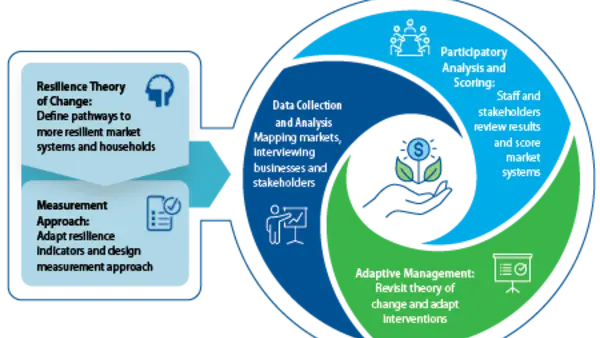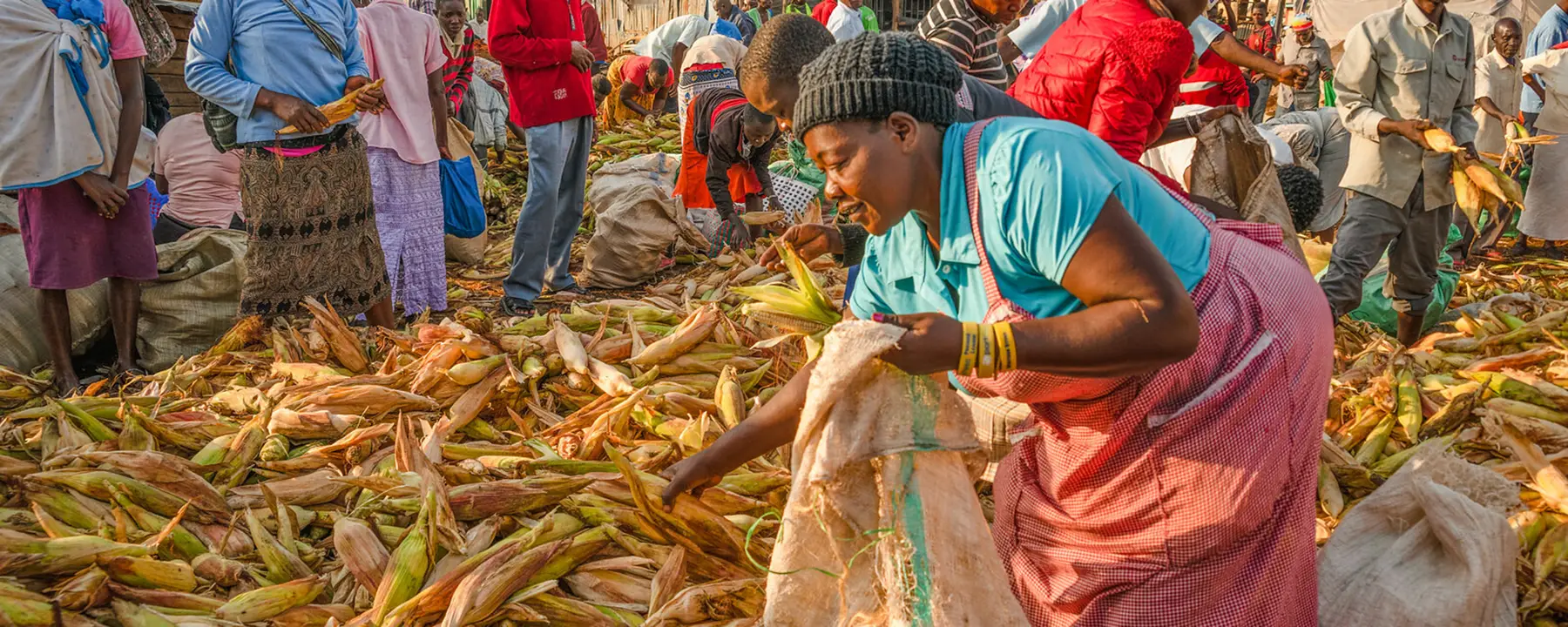Applying research and learning to assess and strengthen market system resilience globally
What is market system resilience?
A market system is a dynamic space in which private and public actors collaborate, coordinate, and compete for the production, distribution, and consumption of goods and services.
Market system resilience (MSR) is the ability of a market system to respond to shocks and stresses in a proactive fashion to sustain market functions that serve vulnerable producers, business owners, workers, and consumers.

Participatory research & learning approach
RTI International conducts applied research and learning on market system resilience to design and implement evidence based MSR programming that
- Adapts to local contexts
- Responds to emergent shocks and stresses, and
- Strengthens resilience at the system, regional, community and household levels.
Applying the Market System Resilience approach
To strengthen the results of market systems development programs, RTI develops resilience theories of change, designs change and conducts studies and evaluations, and facilitates learning and adaptive management workshops.
The MSR approach can be applied to many types of systems, ranging from agricultural, environmental, water, energy, and health. RTI has applied the MSR approach to the following sectors by developing frameworks, measurement approaches, tools, learning briefs, and generating evidence:
- Agricultural and food systems
- Women's empowerment
- Enterprise resilience
- Aquaculture and fisheries
- Weather shocks and/or natural disasters
Examples of applying MSR programs across sectors

MSR in conflict-affected contexts
With internal funding, RTI designed a facilitated locally led process to adapt the MSR framework to the fragile context of South West State in Somalia. We developed a set of resilience-focused theories of change and measured quantitative and qualitative indicators of resilience in the livestock and grain markets, using a participatory scoring approach. Results contributed to program adaptations to buffer food security during shocks including desert locusts, drought, and COVID-19.
Women's Roles in MSR
RTI conducted a study in Somalia and in Haiti to shed light on the critical role of petty trade for food security in fragile settings. Women traders frequently shoulder the risk of high price volatility and unpredictable access to markets to generate income for their families. In Somalia, petty traders have high resilience capacities despite the limits they face to business growth. Results highlight the need for approaches in MSR programming that can improve the income potential and resilience of a frequently overlooked market segment (e.g., small-scale retail of nutritious foods).
Strengthening Enterprise Resilience
RTI developed and piloted a framework to improve the resilience of micro, small, and medium enterprises. We assessed five domains of resilience for agro-dealers in Ethiopia to identify key contributing factors to business continuity during multiple shocks, including fertilizer shortages and rapid inflation.









